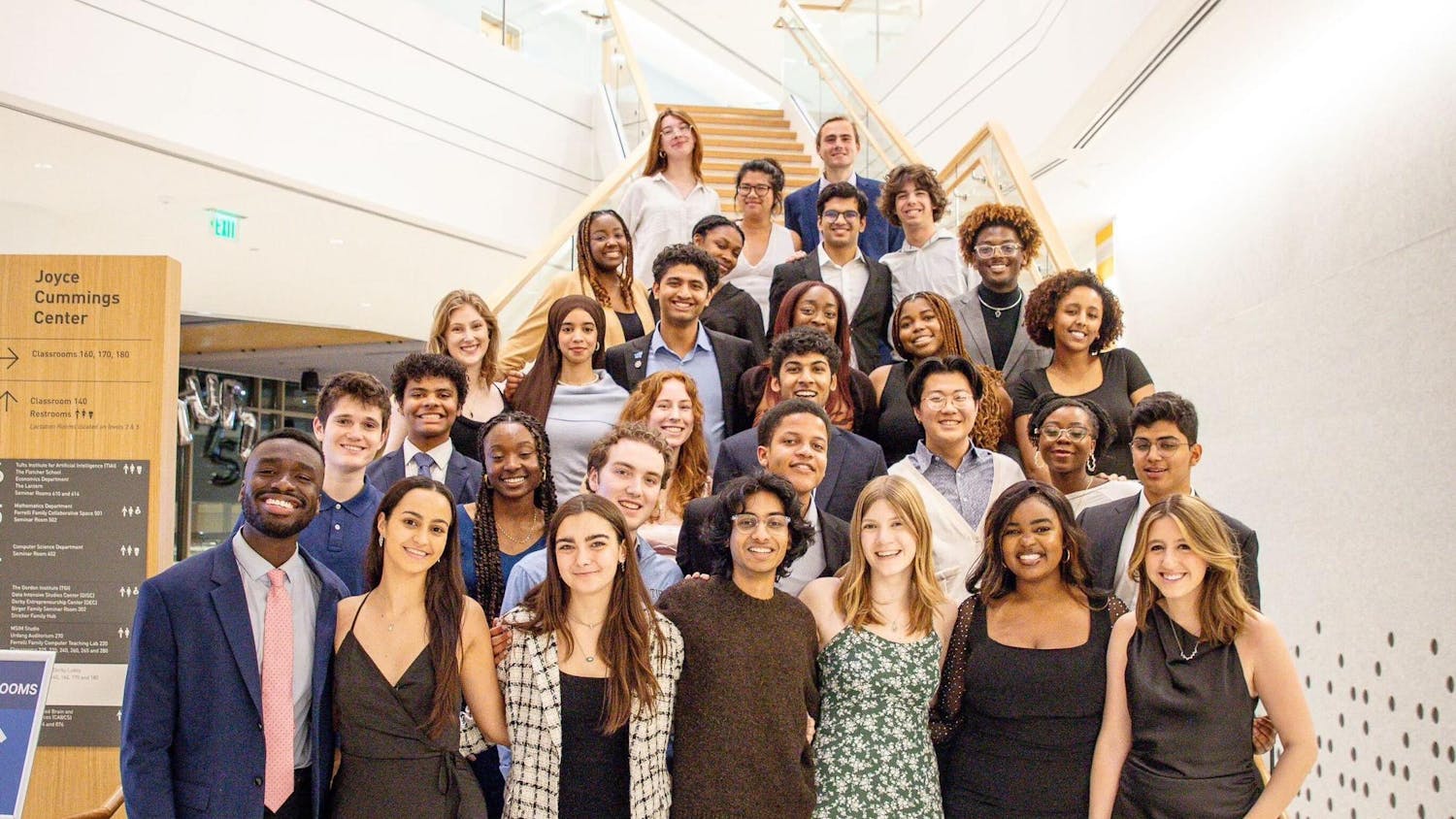Tufts' recycling and waste reduction programs were honored last month at MassRecycle's17th Annual Recycling Awards Ceremony.
Competing in a category against other institutions of higher learning, Tufts beat out bronze medalist Clark University to receive the silver, placing second to Harvard University.
The ceremony took place at the InterContinental Hotel in downtown Boston, and Tufts Waste Reduction Program Manager Dawn Quirk and Director of Facilities Technical Services and Energy Manager Betsy Isenstein accepted the award on behalf of the university.
A peer review committee narrowed down the nomination pool to three finalists, using a point system that evaluated each nominee based on categories including innovation, reduce, reuse, recycle and organics. Finalists were granted 30-minute interviews, and final rankings were determined by the committee and announced at the awards ceremony.
Emily Geosling-Newman, program coordinator for the Tufts Institute of the Environment, attributes some of the credit for the university's second-place finish to University President Anthony Monaco's strong emphasis on sustainability.
"Tony Monaco's passion for sustainability has helped people realize how to make less of an impact on the environment while at Tufts," she said.
New campus-wide initiatives and student organizations promoting sustainability are what gave the university an edge in the competition, according to Quirk.
"I think what really set us apart is our Eco-Reps program and the continual dorm recycling initiative," she said.
The volume of recycled items within dorms has increased significantly over the past several years as the message of sustainability has taken hold, Quirk noted.
Paper, which ranks first among the most commonly recycled items at Tufts, is associated with economic as well as environmental benefits, she said.
"Items that we recycle are commodities that are important in the market place," Quirk said. "When we recycle paper, companies buy our recycled paper. So it's not only environmentally altruistic to recycle, but important for the economy."
Tufts Dining Services is also one of the most sustainable college dining programs in the country, according to Quirk.
"I had actually hoped to nominate Tufts Dining for an award, but this year, MassRecycle changed the requirements that would have been necessary to do so," she said. "They needed data that we would not have been able to attain."
Tufts was one of the first college campuses to support a composting initiative, which began in its dining halls, according to Geosling-Newman. The university in the spring of 2010 was also one of the first to go "trayless," she added.
The Office of Sustainability (OOS) still has room to improve, according to Quirk, and is currently working to increase the reuse of dorm room items. The OOS this year created a FreeCycle program that allows students to drop off and pick up unwanted reusable items at the FreeCycle stations at any time during the school year. FreeCycle items were also made available to new students this year during orientation.
Geosling-Newman nominated the university for the award this year, providing quarterly data regarding quantity of waste and recycling, as well as descriptions of the programs at Tufts that have increased campus sustainability.
"I decided that Tufts deserved recognition for the great recycling program it had," she said.
One such high-impact program is Tufts Recycles!, which was launched in 1990, according to Isenstein.
"The Tufts Recyles! program provides infrastructure to support recycling on all campuses with a goal of making it easy for our community to recycle," she said. "As a community, we need to make sure that we are doing so to the very best of our ability."





